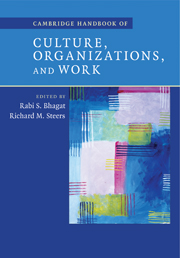Preface
Published online by Cambridge University Press: 15 December 2009
Summary
As noted organizational scholar Robert J. House recently observed:
ample evidence shows that the cultures of the world are getting more and more interconnected and that the business world is becoming increasingly global. As economic borders come down, cultural barriers will most likely go up and present new challenges and opportunities for business. When cultures come in contact, they may converge in some aspects, but their idiosyncrasies will likely amplify.
In this new and more turbulent global environment, a critical question is whether these new global realities will cause various dissimilar cultures of the world to converge, harmonize, and seek common ground or to retrench, resist, and accentuate their differences. In either case, it is important for organizational scholars and managers of multinational and global organizations to understand the intricacies of the cultural undercurrents that are responsible for these changes. To accomplish this, we are in need of the best information possible concerning the role of culture and cultural variations in various macro and micro processes in organizational contexts.
The principal objective of this handbook is to aid in this endeavor by reviewing, analyzing, and integrating available theory and research in the field of organizational studies as they are influenced by cultural differences. More specifically, this handbook focuses on explicating the interactive relationships between culture, work, and organizations, as well as the implications of these findings for future research and theory development.
- Type
- Chapter
- Information
- Cambridge Handbook of Culture, Organizations, and Work , pp. xv - xxiiPublisher: Cambridge University PressPrint publication year: 2009



